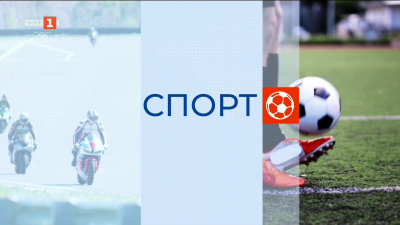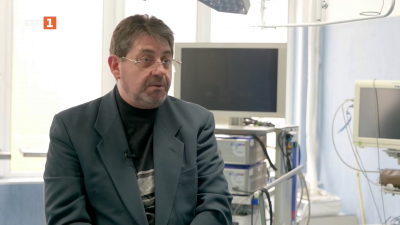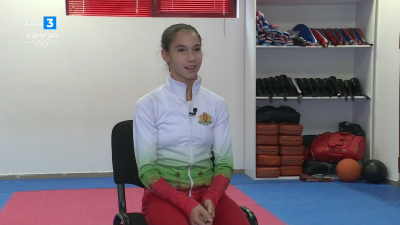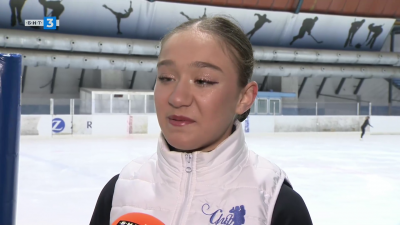Protesting Bulgarian farmers block main roads, border crossings
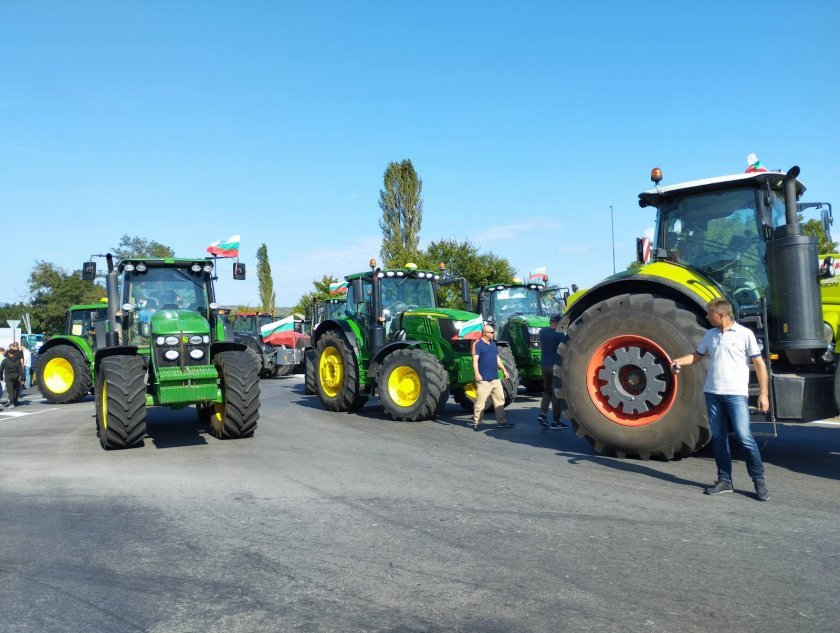
Bulgarian farmers staged a nationwide protest, blocking main roads and border crossings on September 18. Blockades have been declared at 47 locations across the country.
Protesters near Blagoevgrad were prevented by police from blocking the main road E-79. Police stopped with a human chain the tractors and the people who had set off on foot to the roundabout at the Blagoevgrad South road junction, although the protest organisers claimed they had permission from the responsible institutions for a short-term closure of the main road.
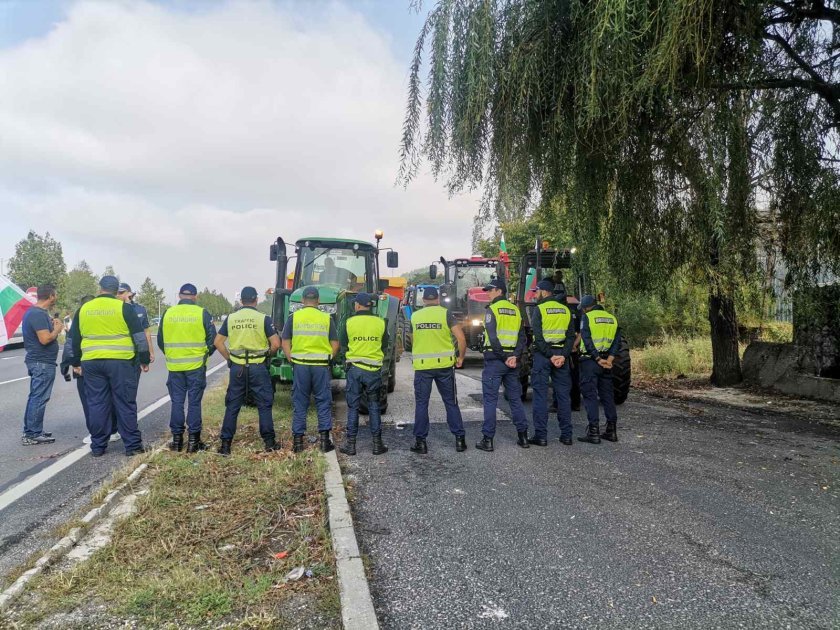
After a dialogue with the police guarding the protest, the tractors were allowed on the main road for a short period of time. However, a large number of protesting farmers remained on the side of the route.
Nearly 300 tractors and agricultural machines blocked the "Petoluchka" road junction. Farmers from Yambol, Sliven, Karnobat, Aitos and Burgas are demanding to reintroduce a ban on imports of wheat, barley, sunflower and rapeseed from Ukraine and to ban imports of unrefined oil, dry milk, honey, meat and meat products, frozen and fresh fruit and vegetables. The protesters promised to periodically let the columns of cars at the Petoluchka road pass. At 13:00, the tractors and agricultural machines that blocked the road junction today set off from Petolachka towards Sofia. The column will move along the Sub-Balkan road. A farmer from Sofia has made his fields available for the machines to park and wait until tomorrow at 8:00 when they will enter the capital. Some of the tractors will remain at the Petoluchka road junction ready to block the road again if necessary.
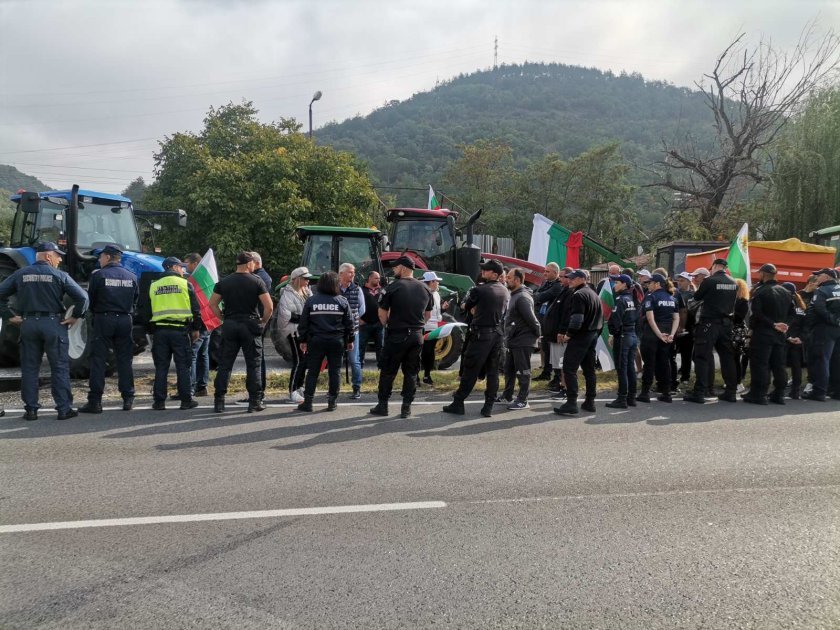
"Bringing in goods below cost and of rubbish quality and selling them to kill the Bulgarian producer is not normal. And when someone wants a dialogue and you call him a terrorist, that's not normal either. (referring to Prime Minister Denkov, who on Saturday said that the farmers started behaving lke terrorists in the last couple of days and were using false arguments, making demands – “Make this happen immediately, if you don't we will block the state”. I do not negotiate with terrorists,". the the PM said) I am proud to be a tractor driver, I am not a terrorist. I'm a producer and I have a product, the state lets the unfair competition, it comes to me and makes this product just like that (crushes grapes with his hand) and then puts me on the market and says - you have a subsidy", said the winegrower Metodi Penchev, organizer of the protest in Burgas.
"The low price that will come, in principle for all products - honey, vegetables, oil, sunflower, wheat, it does not contribute to the final low price for the consumer, but it is raised," noted beekeeper Georgi Atanasov.
Over 50 heavy machines of grain growers took part in the protest in the village of Karapelit in Dobrich. Livestock breeders and beekeepers also took part. The machines are moving slowly through the centre of the village, stopping every hour to allow vehicles caught in the traffic jam due to the protest. According to the protesters, this organisation will continue until 5pm.
In Montana, more than 50 farm machines and about 200 cars blocked E-79 for minutes. The Montana-Vratsa road is currently blocked and traffic to Sofia has been rerouted via the Petrohan pass. Due to the ban on vehicles weighing over 12 tonnes passing from there, the queue of cars on the ring road is long.
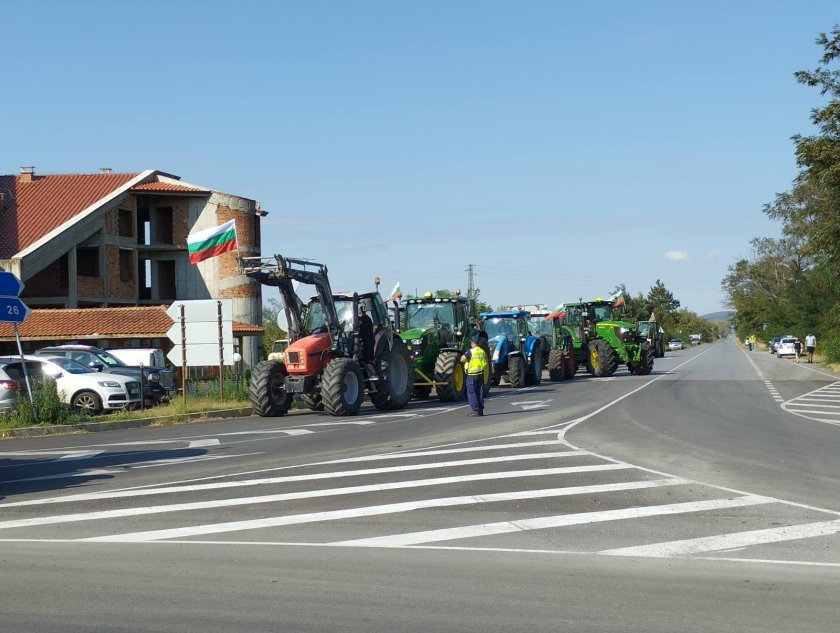
Farmers staged a protest near the Danube Bridge checkpoint at Rousse, blocking traffic in the area of the border crossing with agricultural machinery. Participants in the protest, which is part of the national agricultural protest, raised banners with the words "The system is killing us!".
"We don't want there to be price manipulation because we all know in the border areas that imports have not really stopped. Whether it passes through Moldova and Romania and we import it as non-Ukrainian grain, it is a fact and we want the state, through its regulators, to fulfill its duties," said grain grower Stanimir Stanchev.
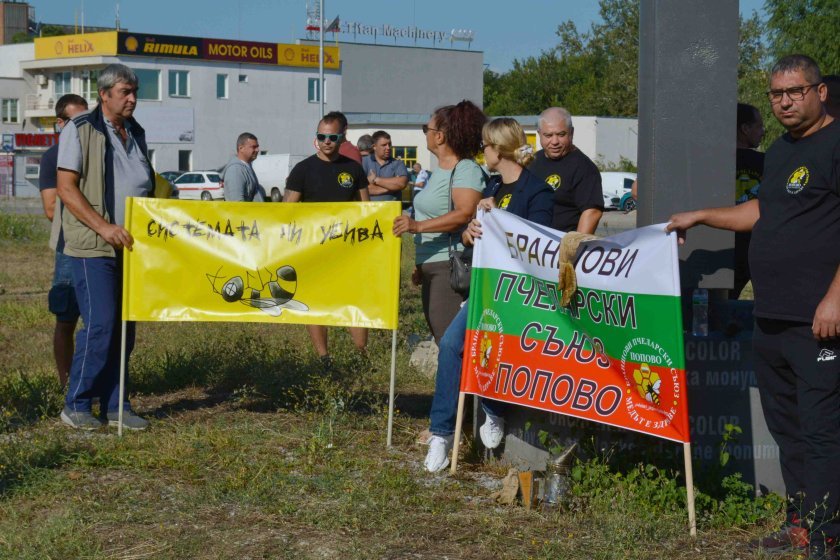
"In the last two years alone, powder milk imports from Ukraine have increased fivefold. We consume, in our shops, milk and dairy products made from Ukrainian powder milk. This is a major problem because it takes away from the livelihood of our producers," says Deyan Zhivkov, co-chairman of the National Sheep and Goat Breeders Association.
According to Stanimir Stanchev, it is absolutely wrong to ask for more subsidies, more money and more aid.
"No, we just want the same rules and to preserve Bulgarian, native production," Stanchev said.
Grain growers predict bankruptcies if imports from Ukraine resume
Get the latest news wherever you are!
Follow us on
Facebook
and
Instagram
Follow BNT’s YouTube channel
You can now also watch us on
TikTok
Find us on
Google News








